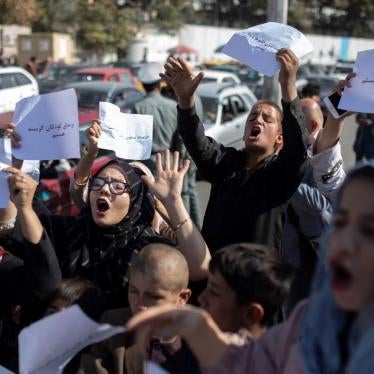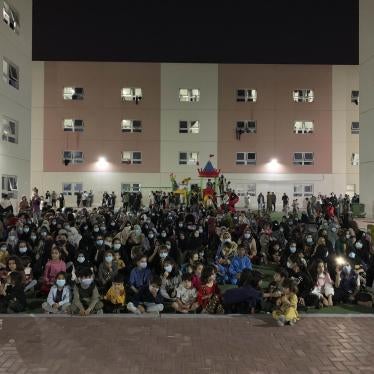My friend Amiri sometimes shows me old photos of himself in U.S.-issued camouflage fatigues, American soldiers’ arms draped around his shoulders, as he recalls the years he spent as their interpreter in various forward operating bases dotted across Afghanistan. While Amiri shared the same discomforts and dangers as his GI “brothers,” he was also an Afghan national and, as such, was targeted more directly and personally for his support of the U.S. military and his commitment to a more democratic Afghanistan.
Feeling unsafe even in his home, he sought a Special Immigrant Visa to come to the United States, a category Congress created to protect interpreters like him. Yet he spent years stuck in bureaucratic red tape, unable to untangle the legal lifeline to escape the potentially tightening noose in his country.
With his wife, Parwana, and three small children, he made multiple unsuccessful attempts to flee Afghanistan; the family was pushed back time and again. They got as far as Turkey but were loaded onto a plane and deported back to Kabul. Finally, in the chaos of the final collapse of the Western-backed government in August 2021, Amiri, Parwana and the children managed to get on an evacuation flight to the United States.
They spent five months at a U.S. military base and three months in a cramped hotel room. After the trauma of fleeing and months of uncertainty, some friends and I helped to set them up in a small apartment in Silver Spring, Md., where Amiri is finding work as a tailor and Parwana as a cook.
Since the Vietnam War era, the U.S. government has resettled refugees “of special humanitarian concern” to the United States, recognizing its particular indebtedness to assist local people who took life-threatening risks to stand together with the United States in its foreign wars.
In the chaos of military defeats — whether the fall of Saigon in April 1975 or of Kabul in August 2021 — slow-moving, carefully managed resettlement, of necessity, has given way to emergency evacuations.
Amiri legally entered the United States under an ad hoc non-immigration status fashioned for situations like this, called “humanitarian parole.” Now, his only option for regularizing his status so that his family can stay here legally is to go through the arduous, lengthy procedures set up for people seeking asylum — a process weighed down with 2 million backlogged cases.
Throughout history, large groups of refugees have fled at the same time, for the same reasons, and have not had to undergo expensive and protracted individual asylum procedures. Instead, they’ve been recognized as refugees as a group, on a so-called prima facie basis. Individualized refugee status determinations for Amiri and the other 70,000 Afghans evacuated to the United States would be a waste of U.S. government resources, would delay integration, and would add years of uncertainty and hardship to their lives. Predictably, any evacuee deported back into the hands of the Taliban most likely would be persecuted or worse — they are, plain and simply, refugees.
A bipartisan group of U.S. senators, led by Amy Klobuchar (D-Minn.) and Lindsey Graham (R-S.C.), has introduced the Afghan Adjustment Act, which would expand and improve the Special Immigrant Visa process and provide a direct path to lawful permanent residency — colloquially known as “green cards” — for Afghan evacuees. They would still undergo extensive, individual security screening but would not have to undergo the burdensome process of establishing their refugee claims.
Specialized legislation to provide green cards to a large, emergency influx of refugees goes back to legislation to adjust the parole status of Hungarian refugees in 1958, the Cuban Adjustment Act of 1966, and the 1977 legislation that allowed adjustment of the status of Vietnamese refugees paroled into the United States. The case for Afghan evacuees in 2023 is equally strong. Afghan refugees who sacrificed so much deserve the same chance to get on with their lives; the Afghan Adjustment Act is deserving of broad support and quick enactment.









